Search results, if found, will automatically update as terms are selected. If no results are displayed, please revise your search terms.
Filter By:
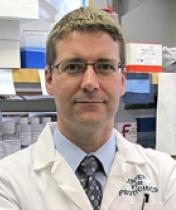
John Tilton, MD
Associate ProfessorDepartment of NutritionSchool of MedicineVice Chair, ResearchDepartment of NutritionSchool of MedicineAssistant ProfessorDepartment of Molecular Biology and MicrobiologySchool of MedicineAssistant ProfessorCenter for Proteomics and BioinformaticsSchool of MedicineEmail: john.c.tilton@case.edu
Phone: 216.368.3360
My lab repurposes viruses for in vivo delivery of protein and nucleic acid therapeutics. We understand the heterogeneity of viruses and other small particles using nanoscale flow cytometry and unravel unraveling mechanisms of extracellular vesicle-mediated fusion and intercellular signaling.

Angela H. Ting, PhD
Associate ProfessorDepartment of Molecular MedicineSchool of MedicineAssistant ProfessorDepartment of Genetics and Genome SciencesSchool of MedicineMemberCancer Genomics and Epigenomics ProgramCase Comprehensive Cancer CenterEmail: tinga@ccf.org
Phone: 216.444.0682
I research the mechanisms of epigenetic gene silencing and understanding the functional relevance of DNA methylation in diseases.
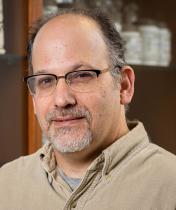
Boaz Tirosh, PhD
ProfessorDepartment of BiochemistrySchool of MedicineCo-LeaderMolecular Oncology ProgramCase Comprehensive Cancer CenterEmail: boaz.tirosh@case.edu
Phone: 216.368.0905
We are using animal models to study the role of stress responses in immunity. We also utilize CRISPR/Cas9 mutagenesis to study the role of stress signaling in cancer, particularly the development of resistance to therapy.
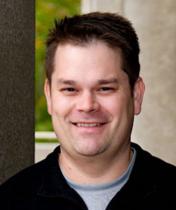
Gregory P. Tochtrop, PhD
ProfessorDepartment of ChemistryCollege of Arts and SciencesAssistant ProfessorDepartment of PharmacologySchool of MedicineMemberDevelopmental Therapeutics ProgramCase Comprehensive Cancer CenterEmail: gpt6@case.edu
Phone: 216.368.2351
I study the linkage between oxidative stress pathways and lipid peroxidation, and the role of the fatty acid binding protein family in lipid signaling.
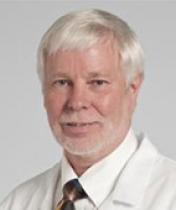
Bruce D. Trapp, PhD
ProfessorDepartment of NeurosciencesSchool of MedicineProfessorDepartment of Molecular MedicineSchool of MedicineProfessorDepartment of PediatricsSchool of MedicineEmail: trappb@ccf.org
Phone: 216.444.7177
My research is in cellular and molecular biology of myelination, demyelination, and remyelination with a focus on multiple Sclerosis.

Saba Valadkhan, MD, PhD
Assistant ProfessorDepartment of Molecular Biology and MicrobiologySchool of MedicineAssistant ProfessorDepartment of BiochemistrySchool of MedicineMemberMolecular Oncology ProgramCase Comprehensive Cancer CenterEmail: saba.valadkhan@case.edu
Phone: 216.368.1068
I study the role of long non-coding RNAs (lncRNAs) in human and mouse, including high throughput studies of cellular gene expression pattern (bulk and single-cell RNA-seq, ChIP-seq, etc).

Anna Valujskikh, PhD
Department of Inflammation and ImmunityLerner Research InstituteEmail: anna.valujskikh@case.edu
Phone: 216.445.5452
I research cellular and humoral alloimmune responses to solid organ transplants.

Focco van den Akker, PhD
Associate ProfessorDepartment of BiochemistrySchool of MedicineEmail: focco.vandenakker@case.edu
Phone: 216.368.8511
I focus on structural biology, infectious diseases/antibiotic resistance, cardiovascular diseases, small-molecule therapeutics design, and cell signaling.

Johannes von Lintig, PhD
Vice Chair for ResearchDepartment of PharmacologySchool of MedicineProfessorDepartment of PharmacologySchool of MedicineSilvia Balslew Page - William J. Reinhart MD ProfessorDirectorVisual Science Training ProgramDirectorSpecialized Animal Core of the Visual Science CenterEmail: jxv99@case.edu
Phone: 216.368.3528
Our laboratory studies the role of carotenoids and their retinoid metabolites in vision. Specically, we analyze how these lipids are absorbed, distributed in the body, and metabolized to biologically active metabolites, including the visual chrmophore. We use mouse modles with mutation in these genes to establish treatments of associated blining diseases.
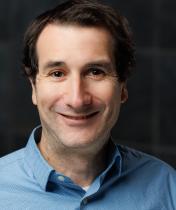
David Wald, MD, PhD
ProfessorDepartment of PathologySchool of MedicineCo-LeaderImmune Oncology ProgramCase Comprehensive Cancer CenterEmail: david.wald@case.edu
Phone: 216.368.5668
My area of investigation includes cellular therapies for cancer, cancer drug development, and genetic and molecular analyses of leukemia.

